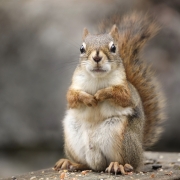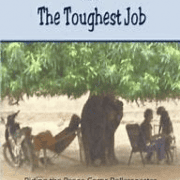Fuzz – a book review
by Anne Newins

Anne Newins
A new book by Mary Roach is guaranteed to bring a smile to your face. Author of six other intriguing books, including Bonk, Stiff, Spook, Gulp, Grunt, and Packing for Mars, Roach has an unusual ability to bring humor, science, and readability into one package. Her penchant for picking off beat topics adds to the fun.
Fuzz examines how various plant and animal species get into conflicts with humans, and in turn, how people try to control their predations. Spoiler alert: this is not a book for the squeamish. Animal control efforts often are barbaric. It also does not discuss the effect of climate change on animal populations.
Much of the book describes the efforts of professionals who attempt, almost always unsuccessfully, to control natural predators. Roach points out that humans often exaggerate the risk of dreaded species, noting that one’s odds of being killed by a cougar are less than being killed by a filing cabinet, and snowplows kill twice as many Canadians as grizzlies.
She quickly embeds herself with a wide selection of authorities across the world, including the Himalayas (leopards), India (macaques), Canada (Douglas firs), the Vatican (gulls and rats), New Zealand (invasive species), as well as numerous locations in the United States. Plant poisons, especially ricin, are described at length.
Many, many, many efforts are made to attempt to control many, many, many animals, especially in the United State—the list is too long to include here. Some countries, particularly Asian ones, are more philosophical and try to come to some level of acceptance of animals that move into their towns and cities. On a more positive note, there seems to be a growing effort to deal with the situation more humanely in the West.
Of course, I wanted to see if she researched some of our more perplexing Manor wildlife. I could not find anything about wild turkeys. But in a chapter subtitled “futile military actions against birds” she recounts an Australian effort to eliminate rampaging emus. In 1932, the Australian Minster of Defense dispatched machine gunners to Western Australia, where the emus quickly got the best of them. After six days, the machine gunners left in defeat, and “emus appeared in huge flocks along the road” to watch them leave. Somehow, this sounded strangely familiar.
Some of us have had unhappy experiences with ground squirrels this summer. Evidently, this is not new. During World War I, ground squirrels were portrayed as enemy sympathizers, and in a California squirrel eradication campaign, posters featured them in tiny spiked German helmets. The effort does not seem to have worked.
Fuzz is a more serious book than some of Roach’s others, although it can be side-slappingly funny. She is sympathetic to the animals and abhors the cruel methods used to control them. On the other hand, she recognizes that it is not realistic to simply ignore the problems they may create. Describing herself as a “vertebrate pest,” she is respectful of the efforts being made by the many scientists, wildlife officers, and others who attempt to cope with the challenges our fuzzy friends create, as well as their willingness to share knowledge and, often, their terrain with her.
A copy of Fuzz may be found at the RVM library as well as the County library. Many of her other books also may be borrowed from the County library.







Thank you, Anne.